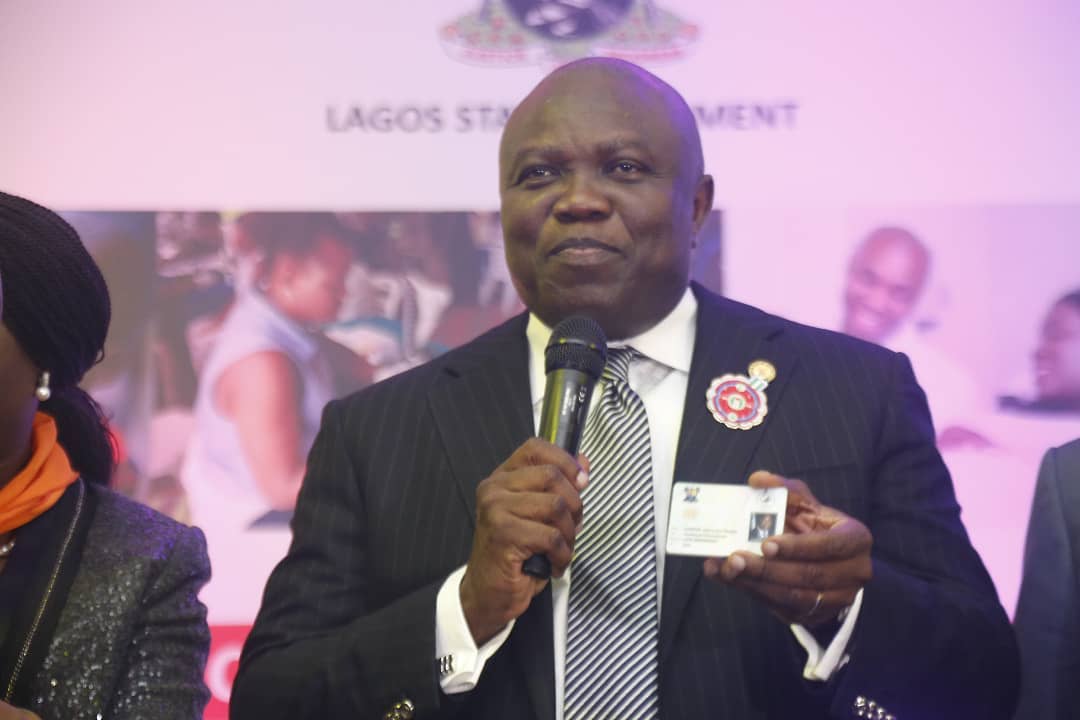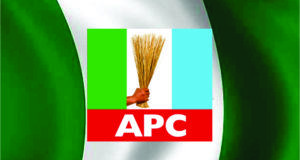 All Progressive Congress (APC) chairman in Lagos State, Alhaji Tunde Balogun has broken down why his party did not give ex Governor of Lagos State, Akinwunmi Ambode a 2nd term ticket.
All Progressive Congress (APC) chairman in Lagos State, Alhaji Tunde Balogun has broken down why his party did not give ex Governor of Lagos State, Akinwunmi Ambode a 2nd term ticket.
According to him, going by the achievements experienced during Bola Tinubu and Babatunde Fashola’s governments, Lagos State has always worked with a ten-point agenda for development, but Akinwunmi Ambode did not continue from where past governors stopped.
Tunde Balogun said some of the points on the agenda were transportation, health, education, environment and security, but Ambode abandoned most of them.
His words, “When he (Tinubu) was there, he did a lot in the area of transportation, health, and the environment before he left office after eight years. Babatunde Fashola took over and followed the same programme to the letter and you found development all over the place.
When Fashola sought re-election, he won with a very large margin because of his performance. When Ambode took over, at the beginning he was adhering to the programme of the party but after some time, he deviated. That singular mistake cost him his second term.”
“In the areas of roads, there were potholes and the major road projects embarked upon by Fashola were abandoned. These were not part of our dreams and vision for Lagos. We plan to have very good management of wastes and complete projects. We did not plan to have abandoned projects and potholes everywhere… that was what cost him the second term that he wanted.
“Some of the projects Fashola embarked on were the railway and the express road from Mile 2 to Badagry. He (Ambode) abandoned them. We also had conspicuous housing projects, one in Ilubirin that he abandoned while the waste management system was run aground. As a party, we have to be responsive to what the people want otherwise we would become a failure”.
Was the decision a good one??
The All Progressives Congress (APC) is a political party in Nigeria, formed on 6 February 2013 in anticipation of the 2015 elections. APC candidate Muhammadu Buhari won the presidential election by almost 2.6 million votes. Incumbent President Goodluck Jonathan conceded defeat on 31 March. This was the first time in Nigeria’s political history that an opposition political party unseated a governing party in a general election and one in which power transferred peacefully from one political party to another. In addition, the APC won the majority of seats in the Senate and the House of Representatives in the 2015 elections, though it fell shy of winning a super-majority to override the ability of the opposition People’s Democratic Party to block legislation.
Formed in February 2013, the party is the result of a merger of Nigeria’s three biggest opposition parties – the Action Congress of Nigeria (ACN), the Congress for Progressive Change (CPC), the All Nigeria Peoples Party (ANPP), a faction of the All Progressives Grand Alliance (APGA) and the new PDP – a faction of then ruling People’s Democratic Party. The resolution was signed by Tom Ikimi, who represented the ACN; Senator Annie Okonkwo on behalf of the APGA; Ibrahim Shekarau, the Chairman of ANPP’s Merger Committee; and Garba Shehu, the Chairman of CPC’s Merger Committee. Ironically, less than 2 years before the party’s historic victory in the 2015 elections, Messrs. Annie Okonkwo, Tom Ikimi and Ibrahim Shekarau resigned from the party and joined the PDP.
The APC support state’s rights, advancing state police as part of its manifesto. Its social policy is a combination of social nationalism. Despite the parties’ domination by pro-devolution politicians like Atiku Abubakar, Bola Tinubu and Chief Bisi Akande, the party’s presidential bearer and the CPC wing is less inclined to federalism.
![DJ Baddo – All Of Me Remix ft John Legend [AuDio]](https://www.naijavibe.net/wp-content/uploads/wordpress-popular-posts/94409-featured-40x40.jpg) DJ Baddo – All Of Me Remix ft John Legend [AuDio]
DJ Baddo – All Of Me Remix ft John Legend [AuDio] ![Drake - One Dance ft Wizkid & Kyla [AuDio]](https://www.naijavibe.net/wp-content/uploads/wordpress-popular-posts/124692-featured-40x40.jpg) Drake – One Dance ft Wizkid & Kyla [AuDio]
Drake – One Dance ft Wizkid & Kyla [AuDio] ![Mr. Charis - All Back ft Zouwrah [AuDio]](https://www.naijavibe.net/wp-content/uploads/wordpress-popular-posts/67331-featured-40x40.jpg) Mr. Charis – All Back ft Zouwrah [AuDio]
Mr. Charis – All Back ft Zouwrah [AuDio]  Dj Kamol – Crazy Gyration ft Skailey Normal [AuDio]
Dj Kamol – Crazy Gyration ft Skailey Normal [AuDio] ![Davido - Aye [AuDio]](https://www.naijavibe.net/wp-content/uploads/wordpress-popular-posts/38417-featured-40x40.jpeg) Davido – Aye [AuDio]
Davido – Aye [AuDio]  Sauti Sol – Live and Die in Afrika [Album]
Sauti Sol – Live and Die in Afrika [Album] ![Burna Boy – Yawa Dey [AuDio]](https://www.naijavibe.net/wp-content/uploads/wordpress-popular-posts/20589-featured-40x40.jpg) Burna Boy – Yawa Dey [AuDio]
Burna Boy – Yawa Dey [AuDio] ![Slyde - Banana (Remix) ft Timaya [AuDio]](https://www.naijavibe.net/wp-content/uploads/wordpress-popular-posts/71004-featured-40x40.jpg) Slyde – Banana (Remix) ft Timaya [AuDio]
Slyde – Banana (Remix) ft Timaya [AuDio] ![K-Solo - Yolo ft Klever Jay, Legely, Tea Jazz & Small Doctor [AuDio]](https://www.naijavibe.net/wp-content/uploads/wordpress-popular-posts/127832-featured-40x40.jpg) K-Solo – Yolo ft Klever Jay, Legely, Tea Jazz & Small Doctor [AuDio]
K-Solo – Yolo ft Klever Jay, Legely, Tea Jazz & Small Doctor [AuDio]  Victony, Don Toliver & Rema – Soweto
Victony, Don Toliver & Rema – Soweto  Tekno – Alleluya [AuDio + Viral ViDeo]
Tekno – Alleluya [AuDio + Viral ViDeo]  Seyi Shay & Yemi Alade – Pempe
Seyi Shay & Yemi Alade – Pempe
 NaijaVibe NaijaVibe | Download Latest Nigerian Music & Mp3s
NaijaVibe NaijaVibe | Download Latest Nigerian Music & Mp3s


